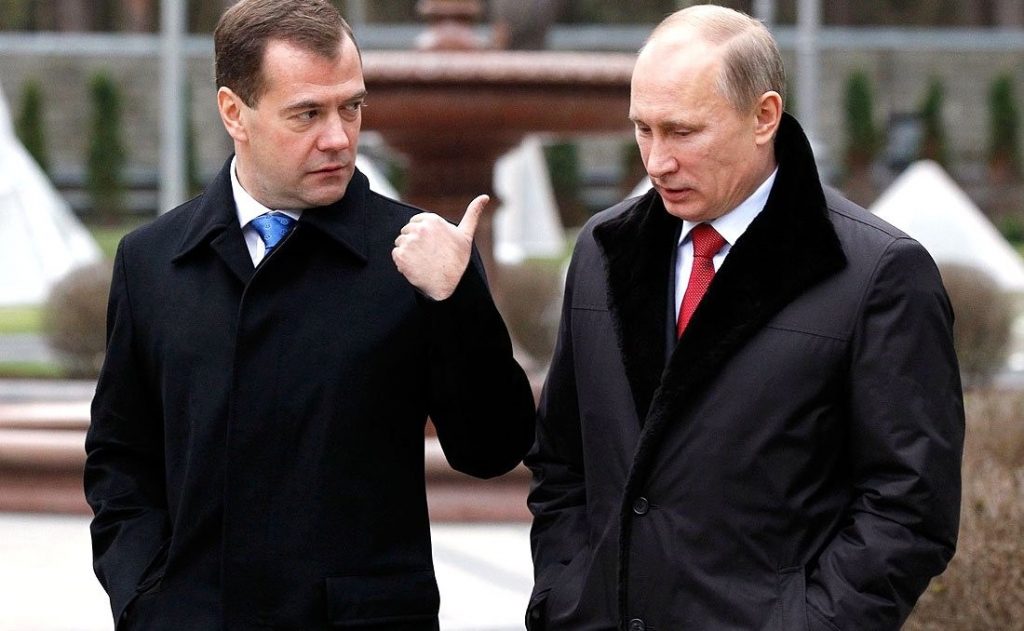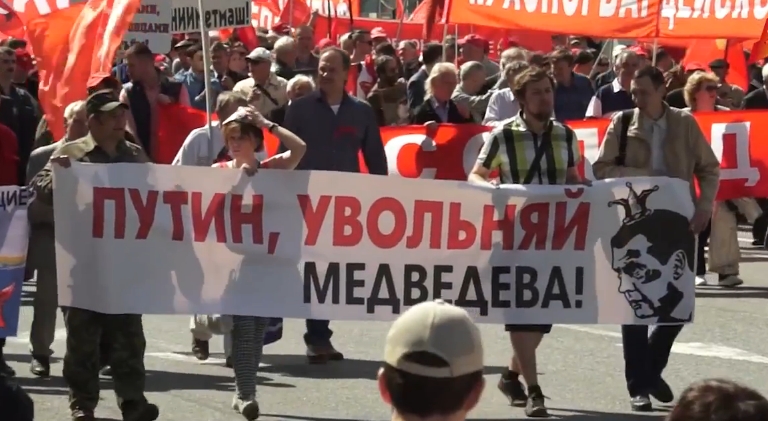Dmitri Medvedev was born on September 14, 1965 in Leningrad. In 1987 he graduated from the law school of the Leningrad State University. In the student years he joined the Communist Party of the Soviet Union, whose member was until August 1991.
After finishing his studies he activated a period as a university professor. At the same time, between 1990-1995, he was the advisor to the chairman of the Leningrad Local Council, Anatolii Sobciak, after which he served as an expert on the Foreign Relations Committee of the City Hall of Saint Petersburg, whose chairman was Vladimir Putin. In his capacity as an expert, Medvedev was responsible for the elaboration and execution of transactions, contracts and different investment projects.
In 1999, Vladimir Putin was appointed prime minister and invited Dmitry Medvedev to Moscow, where he served as deputy chief of the Russian Government apparatus, later led by Dmitry Kozak.
Following the resignation of Russian President Boris Elten and the appointment of Vladimir Putin as interim head of state, Dmitri Medvedev took over as interim head of the presidential administration. When Putin won the election, Medvedev was appointed first deputy of the presidential administration.

From 2000-2008, he was Vice President and President of Gazprom. From October 2003 to November 2005, he was the head of the Presidential Administration of the Russian Federation, and from November 2005, Deputy Prime Minister.
In March 2008, Dmitri Medvedev won the presidential elections in the Russian Federation. His candidacy was approved by Vladimir Putin, who at that time had two active heads of state and was not allowed to run for the third time in a row.
On the night of August 7-8, 2008, an armed conflict broke out in Georgia. Authorities and separatists have accused each other of violating the ceasefire agreement. Russian peacekeeping troops were also affected by the fighting. In response, the Russian Federation sent military troops to Georgia. Russian operations on the territory of a neighboring state have raised dissatisfaction and attracted criticism from most Western states. The fighting ended five days later, on August 14th.
On August 26 of the same year, Dmitri Medvedev signed the decrees recognizing the independence of Abkhazia and South Ossetia. This move led to a wave of condemnations in the West and was not supported by any other post-Soviet state.
In 2012, after the election of Vladimir Putin as president of the Russian Federation, Dmitri Medvedev was appointed Prime Minister of the Russian Federation.

On March 2, 2017, the “Anti-Corruption Aleksey Navalny” Fund released the film “On vam ne Dimon” about Dmitri Medvedev’s assets. According to the authors, Medvedev holds, through charitable foundations and organizations registered on behalf of other people, expensive real estate purchased on the money of the oligarchs and loans from Gazprombank. Medvedev called these claims “false products of political swindlers.” Following the film’s release, on March 26, hundreds of Russian cities held protests against corruption. The faction of the Communist Party proposed to verify the materials published in the investigation, but the State Duma refused to comply with the request.


